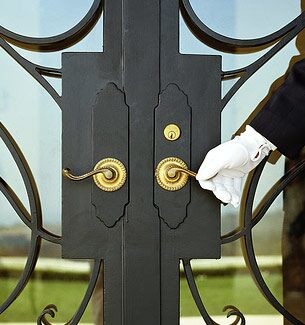News
Find all of our news on management, positive leadership and personal development on our success page!
Our page is open to all, and we invite you all to share your articles to this area dedicated to know-how.
Optimism is contagious, questioning is perpetual and the desire to always surpass oneself is never ending. VENDOM accompanies you throughout.
-

02/04/2021 •
Elena ORTA
Front Office Clerk

What are we talking about when we talk about luxury?
Source : https://www.linkedin.com/pulse/de-qu%C3%A9-hablamos-cuando-lujo-elena-orta/
We often hear about this concept in absolute terms. However, it could be said that it is as relative as love and happiness are, since there is no single universal definition for all people. Each one has its own, and yet it is not always easy for us to express their meaning. But if there is one thing that I think we would broadly agree on, it is that luxury is a concept in constant evolution, and that it is directly related to that of society, the environment that surrounds it and its needs.
In the luxury hotel industry, there are service standards that are a sine qua non for the establishment to acquire and maintain its category. However, there is also an ethereal element that may be even more important: it is that "punch", an "I don't know what" ... that makes those who receive it feel special.
If we think of the craft of craftsman, our mind may imagine someone who makes bags or shoes with their hands, a carpenter who works with wood or a jeweler who delicately makes unique pieces. What was common in another time, has now become something unique.
The service industry, worth the redundancy, has been industrialized, and in my humble opinion, especially in our sector, the artisan should weigh more in the balance than the worker. And that, I don't know about you, but I often miss it ...
One of the reasons why I like my job is because of the possibility that each day is different. New clients = New challenges. Because each person is different and demands that you also be different with each one of them. Everything is important: his physical appearance, his way of dressing, the way he speaks, the perfume he uses or that book that he carries in his hand or has accidentally forgotten at reception.
The client, who is not an imaginary entity, feels like the person in front of him. He wants and needs to be heard, and he likes to be treated differently from others, to feel that what is important to him is also important to you.
The 5 * customer does not "buy" a comfortable bed, Jo Malone amenities, not even an efficient receptionist or waiter. In a luxury establishment, all of the above is largely implicit in its categorization.
In a society saturated with stimuli, it is increasingly difficult to attract people's attention. Customer service is less attentive and human resources less human. Hence, time, which we dedicate to other people, can turn the simple and everyday into something extraordinary.
Have we lost the ability to surprise ourselves? My answer is yes. The human being is capable of normalizing certain habits and behaviors with relative ease, and even assuming that what we see, just by doing it repeatedly, is the maximum that can be expected. Even so, I think that we all long to be surprised, although this wish most of the time we do not verbalize.
It is very motivating to know that you can be the person responsible for activating that mechanism and a satisfaction when you perceive that change in the way the client looks. A change that may be fleeting, but enough to know that you have awakened something inside of him.
From my experience in the Front Desk I deduce that certain skills can be developed after treating many clients (even training employees in this regard), but there is also an innate talent, a personal and non-transferable sixth sense. Being nonconformist and tenacious, having curiosity and sensitivity, and an open mind are highly valued qualities.
Regarding the types of cultures that Anne Debard mentions in her article (https://www.vendom.jobs/fr/succes), I would like to contribute something. I recently read an article entitled "Luxury, a multicultural issue" whose headline read the following:
"A seller of a luxury brand anywhere in the world must understand the codes of the culture of any client to transmit a memorable experience"
This statement may seem basic and obvious. However, the question is: Are the personnel serving the customer aware of these codes?
Sometimes this knowledge arises from personal experiences we have had, although sometimes this is not enough. Why not combat this lack with training? In particular, those hotel chains or groups that have an extensive network of hotels distributed throughout the world, should, in my opinion, take advantage of this structure for the purpose of mutual benefit as a consequence of possible exchange programs.
This reflection is an invitation to those people on whom, to a greater or lesser extent, these initiatives depend. It goes without saying that the client, in addition to the sympathy, appreciates and values the cultural training of those who serve him.
We constantly speak of "the client", to the point of having the feeling of having internalized these two words like a mantra without form or bottom. We must not forget the unique character of each one because then there is the risk of looking with the eyes of a worker instead of a craftsman.
Luxury is in a click, it is often a whole and often just a subtle gesture ...
And you, are you a worker or a craftsman?Share

